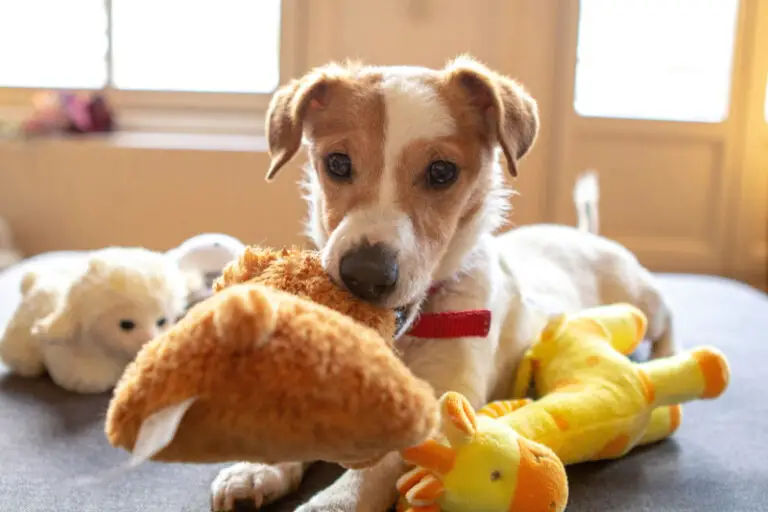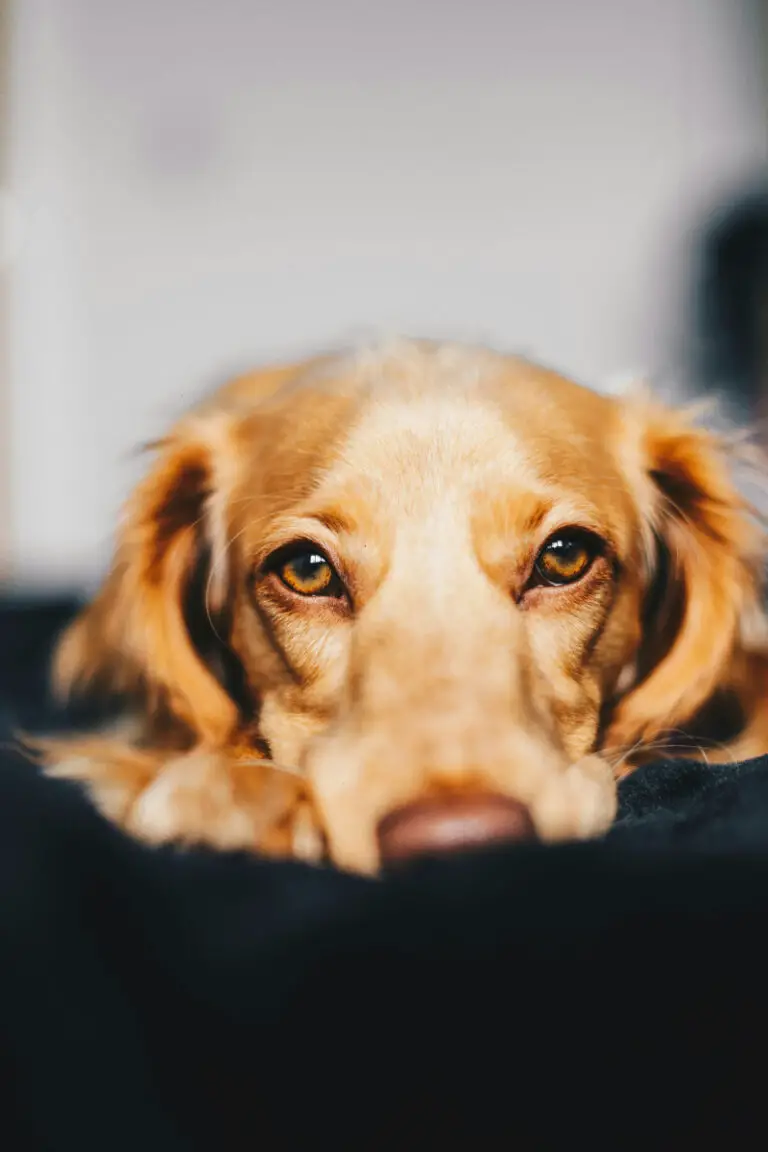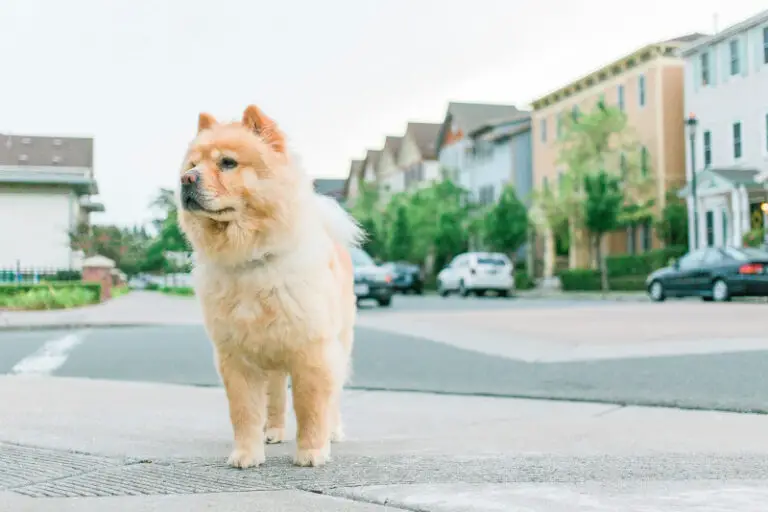Of all the strange habits that our dogs have, for example drinking from the toilet, wallowing in mud, or rummaging through garbage, none are as disconcerting as ingesting poop. The habit of eating feces, scientifically called coprophagia, is quite common in dogs and can be due to different causes. Why do dogs eat poop?
At SweetDoggo we explain everything you need to know about it: most likely causes (normal/abnormal), risks associated with coprophagia, and what to do to avoid it.
Table of Contents
Why does my dog eat poop?
As the researchers explain, dogs may eat feces for a wide variety of reasons. Sometimes it is considered normal behavior, but other times it indicates that something is not right. Likewise, it is known that they can not only eat their own poop, but also that of other dogs or other animals, such as cats, horses, chickens, rabbits, and even human feces.
3 normal causes
As worrying and unpleasant as it may seem, it is normal for a dog to eat poop in the following scenarios :
1. Bitches during lactation
Mothers often eat the feces of their pups as part of the cleaning routine. This instinctive behavior helps keep everything clean, both the puppies and the environment. It usually only lasts 3 weeks after birth.
2. Puppy stage
Coprophagia in puppy dogs is also usually a natural behavior. Many puppies start eating poop from an early age, whether it’s their own poop (autocoprophagy), another dog’s poop (allocoprophagy), or another animal’s poop.
While some stop eating feces as they get older, others continue to do so well into adulthood.
3. Feces of other animals
As mentioned, dogs often eat the feces of other species simply for pleasure. It is believed that some cat and horse feces may be attractive to them.
8 abnormal causes
In general, it is important to pay attention if an adult dog starts to eat his own poop or the poop of another dog. In that case, it is not considered a normal habit. Most associated causes can be grouped into two categories: nutritional and behavioral.
4. Insufficient feeding
A dog suffering from starvation or severe malnutrition may eat anything in its path, including droppings. Make sure you feed your pet well, giving him regular meals throughout the day.
If the dog has enough food but is still eating feces, consider that some dogs are hungry all the time, even if they are well fed.
5. Nutrient malabsorption
Any condition that causes poor absorption of nutrients can, in turn, lead to the ingestion of feces. The dog may eat his, another dog’s, or other animals’ poop in an attempt to get unabsorbed nutrients.
Why does your dog not digest or absorb nutrients well? This can happen if:
- You have been sick or taking medicine for a long time.
- It has a deficiency of digestive enzymes.
- He is being fed an inadequate diet.
- Do not eat a moist enough diet.
- Your dog has an unbalanced gut microbiome.
In these cases, the type of stool can give some clues about what is missing. Does the dog eat cat, rabbit, or horse feces?
For example, if the dog only eats poop from the cat litter box, it could be a sign that he is not absorbing enough protein. Given the specific nutritional needs of cats, their food is usually higher in protein than most dog foods.
Similarly, if the dog eats the poop of a herbivorous animal, say a rabbit or horse, it may indicate that the pet is seeking certain predigested digestive enzymes and nutrients normally found in nature.
6. Certain health conditions
Some diseases such as diabetes and thyroid problems can increase the dog’s appetite, leading him to eat his own feces. Intestinal parasites can also cause this behavior by preventing the full utilization of food.
7. Attention Seeking
A puppy may get used to eating poop from an early age as a way to play and get his owner’s attention. It is very difficult not to pay attention to a dog that is eating poop. Most likely, the person will immediately run to him.
While some dogs may become frightened, leave the poop and never touch it again, others may interpret your reaction as play, thus learning the behavior and continuing to eat poop as adults.
8. Anxiety
Another explanation for why some adult dogs eat poop is anxiety. It’s not uncommon for a cooped-up anxious dog to end up defecating and eating his own poop. Types of canine anxiety that can cause coprophagia to include generalized anxiety, separation anxiety, or confinement anxiety.
9. Boredom
Bored dogs who don’t get enough playtime and exercise, or who spend a lot of time alone at home, are prone to eating any poop they find as a form of entertainment.
10. Stress
Does the pet live in a stressful environment? Have there been any recent changes in the home? Sometimes stressed dogs eat things they shouldn’t. Eating poop is known to be the best form of stress relief for some.
11. Fear of punishment
An adult dog can learn to eat its own poop as a puppy if the owner repeatedly punishes it for defecating in the house. The pet learns to “eat the evidence” because it is worried about being scolded or punished.
Recommended: Anxiety in Dogs – Causes, Types, Symptoms + How to Calm It Down
Interesting facts about the habit of eating poop in dogs
- Dogs rarely eat loose, poorly formed stools or have diarrhea. They seem to only be attracted to hard stool, particularly if it’s frozen.
- Coprophagia is usually more common in multi-dog households.
- Female dogs are more likely to eat feces compared to males.
- Most dogs that exhibit this behavior only eat fresh, 1-2 day old feces.
Are there health risks for a dog eating poop?
The fact that some dogs eat their own feces does not usually represent a danger; It is generally considered harmless to the pet’s health. However, there is a possibility that the bacteria and parasites present in these feces could be transmitted to humans and other animals by coming into contact with their saliva and mouth.
Likewise, a dog that eats the feces of another animal (especially another dog or cat) runs the risk of ingesting the eggs of intestinal parasites and potentially harmful bacteria, which is why it can get sick later.
If your dog is prone to eating the droppings of other dogs or animals, be sure to get him regular fecal tests.
Finally, another of the undesirable effects of coprophagia in dogs is bad breath.
How to stop your dog from eating poop?
After asking ourselves “why do they do it”, the most common question in a case of canine coprophagia is, without a doubt, what to do to stop dogs from eating poop. Once the cause has been determined, the owner can try different strategies to correct the problem.
In general, these are the most effective steps to stop a dog from eating poop:
1. Prevent access
A dog cannot eat feces if it does not have it. Prompt disposal is key to preventing your dog from ingesting his own waste or that of other household pets. If you have a cat, be sure to restrict the dog’s access to the litter box and remove its droppings at least 2 times a day. Remove any debris from your yard or garden.
2. Timely training
Since behavior problems are sometimes a major component of coprophagia, modifying the dog’s behavior is essential to breaking the bad habit. He needs to be taught that eating feces is unacceptable behavior. This is where training and positive reinforcement come in.
Some recommendations to keep in mind are:
- Redirect their attention, practicing commands like “leave it.”
- Ask him to sit until you have had a chance to remove the stool.
- Keep the dog on a leash in case he eats poop while outside.
- Reward appropriate behavior with praise and treats. Once your dog shows interest in the stool, quickly offer him a treat to draw attention away from him and talk to him in an encouraging way.
3. Enough exercise and entertainment
Keeping the dog busy always helps prevent behavior problems, including coprophagia. Dogs who are bored, stressed, anxious, or craving attention can find comfort in this habit, which is why it’s so important to provide plenty of daily exercises and playtime.
4. Proper nutrition
If the dog is looking for alternative sources of nutrition, it is possible that some nutrients are missing from the diet. Take a look at the list of ingredients in your food; is it full of fillers and grains? Perhaps switching to a healthier type of dog food will prevent him from continuing to eat feces.
Your vet can help you design a high-quality, balanced diet to meet all of his nutritional needs, as well as diagnose and treat any other underlying issues that are contributing to this behavior.
Additional supplementation with probiotics and digestive enzymes are often recommended to improve nutrient absorption and assimilation in deficient dogs.
5. Deterrent dietary supplements
Another home method to prevent your dog from ingesting poop is to make it unattractive. For this, there are certain natural supplements, whose ingredients have the power to reduce the smell of feces and create a more unpleasant bitter taste, as well as to favor the digestion and absorption of real foods.
Many coprophagia deterrent supplements contain monosodium glutamate, chamomile, pepper derivatives, cassava, garlic, and parsley.
Note. Getting a dog to stop eating feces may require a combination of all of these tips. The time needed to fix the problem will vary depending on the individual dog and the severity of the cause that is affecting it. The progressive reduction in the ingestion of excrement is a sign that you are on the right track. It is always advisable to consult the veterinarian about the best way to treat coprophagia in dogs.



